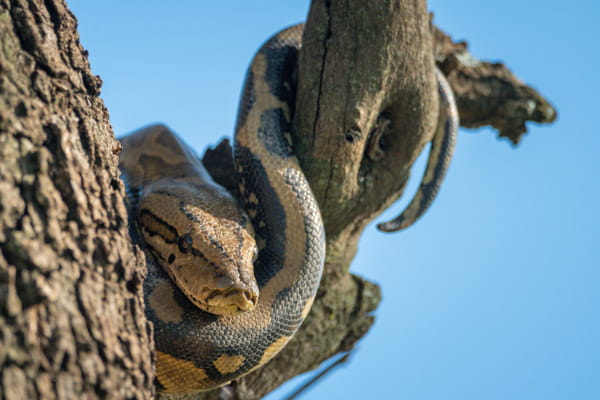Raising this particular animal could be an alternative to traditional meats.
Meat production and consumption is one of the major issues in the question of environmental protection. Agriculture, and in particular livestock farming, is a very polluting and energy-intensive industry. According to figures from the Food and Agriculture Organization (FAO), livestock farming accounts for 12% of greenhouse gas emissions caused by human activity. If more and more consumers are turning to a diet with less or even no meat, the main reason is often ethical. The living conditions of animals in industrial farming are often deplorable. A diet based on plant proteins would be a very good ecological alternative.
This is the conclusion reached by a report of the association group Réseau Action Climat published in February 2024. This report suggests that a 50% reduction in meat consumption would allow France to achieve its objectives in the fight against global warming. The solution, according to this report, would be to include more legumes in the daily diet. Others propose more original solutions. This is the case, for example, of the Australian biologist Daniel Natusch. He suggests that python meat could be a good alternative to traditional meats.
From the British media The GuardianDaniel Natusch explains that he has had the opportunity to eat python on numerous occasions with indigenous people in the Malaysian jungle. According to him, python meat tastes exactly like chicken. For the time being, it is easier to eat python in South Asian countries such as Vietnam or Thailand. These are the two countries where Professor Natusch and his ecologist colleague, Patrick Aust, went to study python farms.
In the study written by the two experts, the results indicate that python farming for its meat could represent a real alternative to traditional farming in regions such as South Africa, which is facing climate change and food insecurity, or in Asia. The natural conditions in these regions are also more favorable to python farming. The python meat marketed would come from the breeding of animals born on farms and not captured in the wild.

Several species of python are considered preferable for breeding, such as the Burmese python, the reticulated python and the southern African rock python. These species have the advantage of being able to survive for almost a month without water and almost a year without food, Professor Natusch explained to the Guardian. These characteristics also contribute, according to the expert, to making the python a richer source of protein than cattle, poultry or salmon. The specialist also explains that pythons produce considerably less greenhouse gases than traditional breeding.
However, as Lin Schwarzkopf, head of the zoology and ecology department at James Cook University, tells the Guardian, more research is needed before serious consideration is given to commercialising python meat. She explains that while pythons grow quickly, they are not easy to breed. She explains: “They have to voluntarily change their body temperature. So you have to provide them with warm areas and cooler areas. And that’s a difficult thing to do on an industrial scale, and it’s very expensive.” The academic believes that a plant-based diet is a better option to meet the nutritional needs of a larger proportion of the population.
